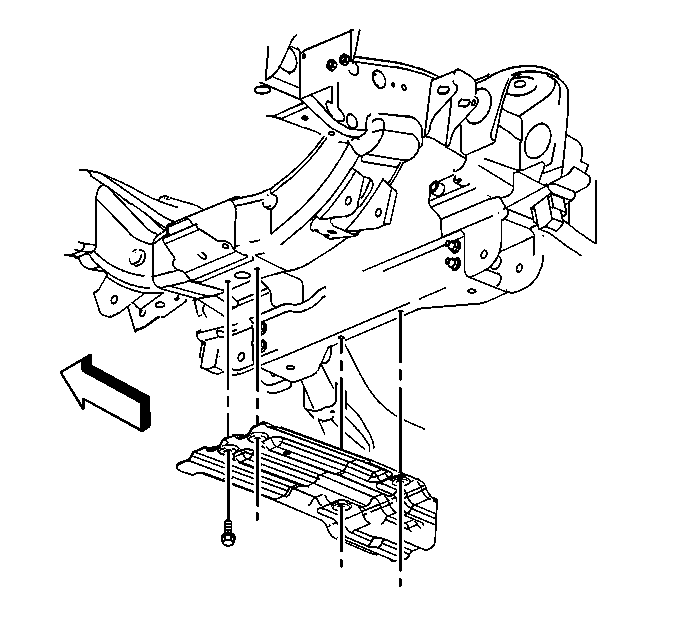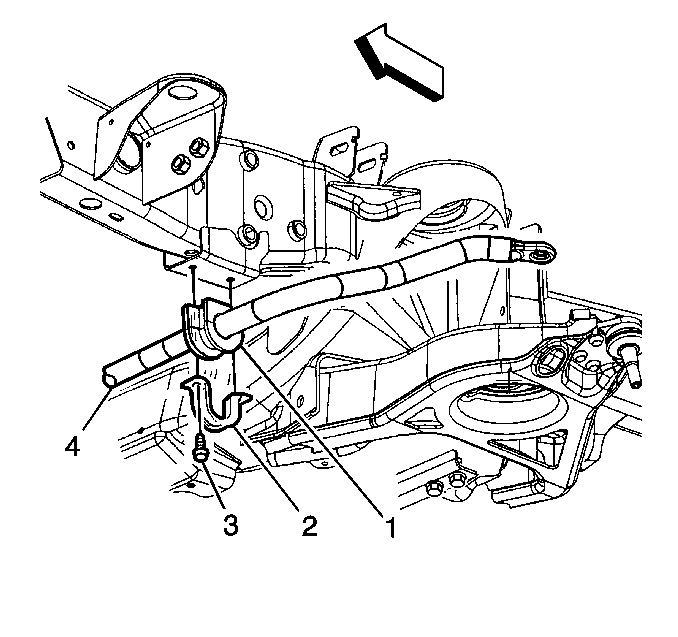Removal Procedure
- Raise and support the vehicle. Refer to Lifting and Jacking the Vehicle .
- Remove the tire and wheel assembly. Refer to Tire and Wheel Removal and Installation .
- Remove the oil pan skid plate, if equipped.
- Remove the stabilizer shaft insulator bracket bolts (3).
- Remove the stabilizer shaft bracket (2).
- Lower the stabilizer bar to remove the stabilizer shaft insulators (1).
- Inspect all of the parts for wear and damage.


Installation Procedure
- Install the stabilizer shaft insulators (1) to the stabilizer shaft (4).
- Install the stabilizer shaft (4) brackets (2) over the insulators.
- Install stabilizer shaft insulator bracket bolts (3).
- Tighten the bolts to 33 N·m (24 lb ft), 15 series.
- Tighten the bolts to 50 N·m (39 lb ft), 25/35 series.
- Install the stabilizer links. Refer to Stabilizer Shaft Link Replacement .
- Install the oil pan skid plate, if equipped.
- Install the tire and wheel assembly. Refer to Tire and Wheel Removal and Installation .
- Remove the safety stands.
- Lower the vehicle.

Important: Place the insulators on the stabilizer shaft with the slits facing toward the front of the vehicle.
Notice: Use the correct fastener in the correct location. Replacement fasteners must be the correct part number for that application. Fasteners requiring replacement or fasteners requiring the use of thread locking compound or sealant are identified in the service procedure. Do not use paints, lubricants, or corrosion inhibitors on fasteners or fastener joint surfaces unless specified. These coatings affect fastener torque and joint clamping force and may damage the fastener. Use the correct tightening sequence and specifications when installing fasteners in order to avoid damage to parts and systems.
Tighten

Tighten
Tighten the oil pan skid plate retaining bolts to 20 N·m (15 lb ft).
